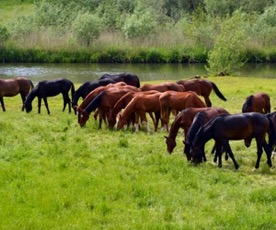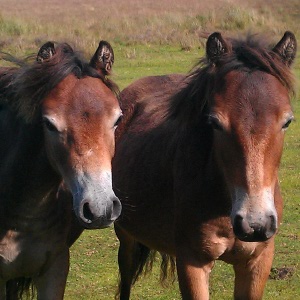How To Care For Your Animal Holistically

What is a Holistic Approach?
Firstly, what does “holistic” mean? Essentially it is an understanding that everything is connected, for example rather than just treating an ailment with medicine, it’s also looking at the emotional and social factors in combination.
Love These Benefits of Holistic Care For Your Horse
On a basic level this could be something as simple or straightforward as managing your horse’ turnout/stable needs. Does your horse prefer to be stabled or turned out in the field with a particular companion? This maybe something that you think automatically about and so do turn your horse out with (or stable next to) companions who s/he gets on well with. But if you didn’t, and through being turned out or stabled next door to other animals who cause your horse stress or anxiety, which in turn affect his/her health/wellbeing, then you may not be considering how this management aspect is affecting the health – so not taking a holistic approach.
Holistic Horse-riding
Before you ride your horse, do you feel like you’re able to concentrate fully on your riding. Or are other areas of your life affecting your riding? As horses are sensitive, they easily become aware of our feelings – whether we’re stressed, relaxed, etc and can react to us accordingly.
Thinking about how you are feeling and also how your horse is feeling when you go to exercise him/her, and responding accordingly – taking a holistic approach, can make a big difference with building a positive relationship with your horse.
Do you use training aids when exercising your horse, under saddle or on the lunge? While different training equipment can have its place (and be helpful!), taking a holistic approach may mean reconsidering your approach to schooling and training - it may not be the quickest way, but it maybe a better way in the long-run.
Six Holistic Horsecare Tips
- Worming – regular worm counts forming the basis of your worm management programme, will often mean less wormers being used. This can help reduce resistance to wormers, and therefore contributes to a holistic approach to horse management. Read more about holistic worming for your horse here.
- Grazing – If it’s possible for fields to be rested, or grazed with sheep, then it can often help improve pasture quality, including improving the mix of grasses and other plants. And reduce worm burden. This in turn may help reduce the use of fertilisers or any chemicals on the grass.
- Rugs – Does a holistic approach mean wearing no rugs? No, it doesn’t! Some horses for their health and wellbeing will need to wear a rug. For example if they have an ailment or are just older and may feel the cold more. Keeping the horse comfortable and able to be at his/her best is the aim of any management approach – including a holistic one! But do have several rugs that you can change regularly. So your horse is comfortable and not too hot.
- Healthcare – Using complementary therapies (alongside conventional medicine when required) to help promote health and wellbeing. Find out more by browsing this website (visit the sitemap for page list) or email me for some general advice!
- Footcare – do you need to use barefoot trimming to take a holistic approach? Again, as with rugs, no you don’t! Although being "barefoot" maybe the ideal, and whilst many horses do “adjust” to not wearing shoes very easily, (it is after all more natural for them not to - horses in the wild will seldom be wearing shoes!), if your horse has an ailment or just has hooves that mean not wearing shoes would be detrimental to his/her health/wellbeing, then shoes should be used. Barefoot shouldn't be a choice for cost-saving reasons, only if it suits your horse or ponies health. Your vet and/or farrier will be able to advise what’s best for your individual horse, taking into account his/her health and activities.
- Feed - Use feed (including treats) that is free from processed/chemically modified or genetically modified ingredients. How can you do this? Read labels carefully! There are many feed manufacturers on the market, who recognise that some people want to feed their horses a "natural" diet. Look out for wording on labels that says "organic", "unsulphured", "non-GMO", etc.
Get Information On Holistic Dog Care Here at This Advice Page
You can find more information on how to help care for your animal holistically below:
- Equine Laminitis and Ways to Help Holistically
- Helping Pets Cope with Loud Noises
- Helping Horses, Ponies and Donkeys with Mud Fever
- How To Worm Your Horse or Dog Holistically
- Older Animals - Ways to Help Holistically
- Osteoarthritis - Help Your Animal Holistically
- Sarcoids and Horses
- Sheep - a Natural Approach
- Summer Healthcare for Animals
- Sweet Itch and Horses, Ponies and Donkeys
- Tendon Injuries and Horses
Other Information
Tellington Ttouch Training for Animals - website
Useful Blog Posts To Help You Care For Your Dog Or Horse Naturally
Is there a "Back Therapy" for horses?
If your animal is itchy, what can help?
Care for your horse and look out for Ragwort
Why Vitamin C is important for Pet health
Heat Therapy for Animals
Should Pet's be Indoors?
Veterinary Physio or Massage, is there a difference?
MSM - Good for your Animal?
Christmas Routines for Our Pets
New Year, New Food For Your Pet?
'Tis the Tick Season - Helping Dogs Cope
Would you like information on Veterinary Surgeon's or Therapists who use holistic approaches near you for your animal? Please email me at info@taranet.co.uk - I'll be pleased to try and assist!
